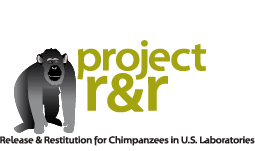October 29, 2008 • Posted in Letter to the Editor
In the September 6, 2008 Newsweek article, “We Fought Cancer…And Cancer Won,” author Sharon Begley discussed the ongoing scientific battle against cancer. She noted that although some genetic breakthroughs have occurred since cancer research began in 1971, Begley cites the many other unsuccessful and costly attempts scientists have made to try to better control and eliminate the disease in humans. Her examples help illustrate a crucial reason why our attempts to cure cancer have failed—research has relied on the use of nonhuman animal models to solve a human-centered disease.
NEAVS/Project R&R Science Director Jarrod Bailey, PhD expanded on the need for human-based research in his response letter to Newsweek:
Sir:
Sharon Begley’s “We fought cancer…and cancer won” [1] revealed the misuse of $200 billion devoted to cancer research. This is evidenced by the failure rate in humans of anti-cancer drugs passing animal tests, which is 95% [2, 3]—and those few drugs that do make it are often poor.
The reason for this is simple: animals are not humans. Even in chimpanzees, our closest relative, at least twenty genes implicated in human cancer are significantly different [4]. The ras gene, involved in many human cancers, works very differently in mice [5]; and another gene that promotes cancer in mice restricts cancer growth in humans [6].
While animal research has provided little to elucidate human cancer, more relevant, human-specific research has saved lives and led to progress—as illustrated by Begley’s article. Scientists now have cutting edge methods we could only dream of a few years ago, that can delve deep into human cancers and deliver treatments and cures. Tissue banks can provide human tumor samples from which the activity of thousands of genes can be deduced in days—implicating those involved in tumor formation. This research has delivered important data on breast, colorectal, pancreatic and brain cancers already [7, 8].
The drug Gleevec was almost abandoned when experiments in dogs revealed liver toxicity. Due to encouraging prior experiments using human cells, canine data were ignored and Gleevec proceeded to clinical trials—and is saving lives [9]. The case for human-based research and against animal-based investigations is strong. Combined with preventive programs (fifty percent of cancers are avoidable [10]), we have a genuine prospect of reversing the increase in cancer and saving millions of lives. Scientists who persist with animal models must leave them behind. If they do not, our failure to make progress against cancer will continue.
Sources
(1) Begley S. We fought cancer…and cancer won. Newsweek, Sep 6. Available: http://www.newsweek.com/id/157548
(2) Thomas G. Roberts, Jr, MD, MSocSci; Bernardo H. Goulart, MD; Lee Squitieri; Sarah C. Stallings, PhD; Elkan F. Halpern, PhD; Bruce A. Chabner, MD; G. Scott Gazelle, MD, MPH, PhD; Stan N. Finkelstein, MD; Jeffrey W. Clark. Trends in the Risks and Benefits to Patients With Cancer Participating in Phase 1 Clinical Trials. JAMA. 2004;292:2130-2140.
(3) Kola I, Landis J. Can the pharmaceutical industry reduce attrition rates? Nature Reviews Drug Discovery 2004;3:711-5.
(4) Puente XS, Velasco G, Gutiérrez-Fernández A, Bertranpetit J, King MC, López-Otín C. Comparative analysis of cancer genes in the human and chimpanzee genomes. BMC Genomics. 2006 Jan 26;7:15.
(5) Hamad NM, Elconin JH, Karnoub AE, Bai W, Rich JN, Abraham RT, Der CJ, Counter CM. Distinct requirements for Ras oncogenesis in human versus mouse cells. Genes and Development 16: 2045-2057, August 15, 2002.
(6) Tang W, Dodge M, Gundapaneni D, Michnoff C, Roth M, Lum L. A genome-wide RNAi screen for Wnt/beta-catenin pathway components identifies unexpected roles for TCF transcription factors in cancer. Proc Natl Acad Sci U S A. 2008 Jul 15;105(28):9697-702.
(7) Parsons DW, Jones S, Zhang X, Lin JC, Leary RJ, Angenendt P, Mankoo P, Carter H, Siu IM, Gallia GL, Olivi A, McLendon R, Rasheed BA, Keir S, Nikolskaya T, Nikolsky Y, Busam DA, Tekleab H, Diaz LA Jr, Hartigan J, Smith DR, Strausberg RL, Marie SK, Shinjo SM, Yan H, Riggins GJ, Bigner DD, Karchin R, Papadopoulos N, Parmigiani G, Vogelstein B, Velculescu VE, Kinzler KW. An Integrated Genomic Analysis of Human Glioblastoma Multiforme. Science. 2008 Sep 4 [Epub ahead of print].
(8) Jones S, Zhang X, Parsons DW, Lin JC, Leary RJ, Angenendt P, Mankoo P, Carter H, Kamiyama H, Jimeno A, Hong SM, Fu B, Lin MT, Calhoun ES, Kamiyama M, Walter K, Nikolskaya T, Nikolsky Y, Hartigan J, Smith DR, Hidalgo M, Leach SD, Klein AP, Jaffee EM, Goggins M, Maitra A, Iacobuzio-Donahue C, Eshleman JR, Kern SE, Hruban RH, Karchin R, Papadopoulos N, Parmigiani G, Vogelstein B, Velculescu VE, Kinzler KW. Core Signaling Pathways in Human Pancreatic Cancers Revealed by Global Genomic Analyses. Science. 2008 Sep 4. [Epub ahead of print].
(9) Groopman J (as stated in The New Yorker): republished in Ridely, Matt (Ed) The Best American Science Writing 2002. Harper Perennial 2002. Pp 352: ISBN-10: 0060936509.
(10) Dobson R. Most cancers in Europe avoidable. BMJ 2007;334:62, doi: 10.1136/bmj.39087.526794.DB.

